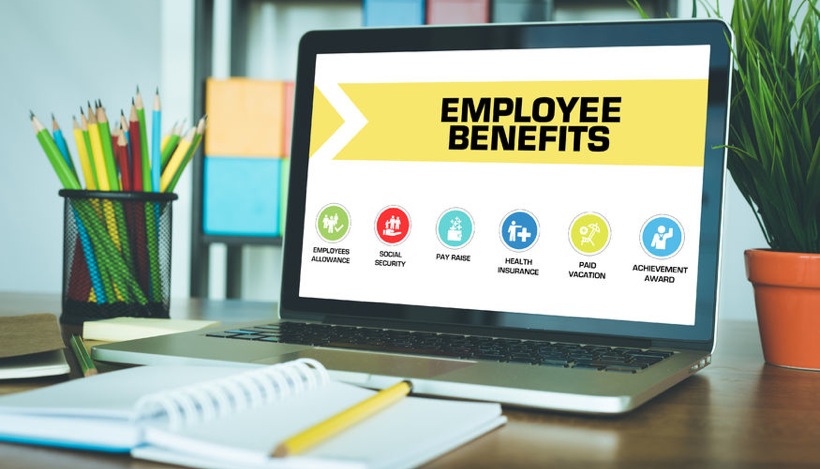From side hustle to freelance to startup, keeping track of money just can’t be ignored. This is called bookkeeping, and it helps you know how much money you’re earning, where your business is spending and how much you are making.
The practice has evolved somewhat since 1458, when Benedetto Cotrugli standardized the practice of bookkeeping and accounting. He used actual books called journals or ledgers, a convention that extended to not that long ago. You are lucky. Today there is technology that makes it much easier and way faster.
Many small businesses — 69% according to Small Business Trends — choose spreadsheets. Perhaps you do, too. Microsoft Excel and Google Sheets are ubiquitous, and pretty much everyone understands the basics.
But spreadsheets can get complicated quickly. First, as your business grows and generates more revenue or spends more (computers, paper, rent, utilities, furniture, raw materials and labor), the books can get harder to keep in order. That simple spreadsheet gets clogged with multiple tabs, and the risk of errors grows with each new formula entered into a cell. Bootstrapped entrepreneurs find that entering financial information into a spreadsheet is laborious and steals time from money-making work. If you’re the owner and you deliver the work, administrative tasks often get pushed aside.
Worse, the spreadsheet doesn’t do all the work. It’s just a giant digital box that performs only as effectively as the person inputting data. It’s just making it prettier to look at than your handwriting and crumpled receipts. The bigger problem is that a spreadsheet lets you do anything, including diverging from good accounting practices.
Stop Doing These 4 Things if You Want Your Business to Last
This is where it’s time to turn to an advanced bookkeeping system. A good bookkeeping system doesn’t just track the numbers. It organizes your data, files, financials and workspaces (which, depending on what you do, can take you anywhere). Good bookkeeping makes it easier for your business to be evaluated — for a loan, by a potential investor or even for an audit. It also makes it easy to find the information you need to create reports that help you make decisions and plan for staffing, growth and supply chain management. Good bookkeeping can even improve your productivity.
Generally accepted accounting principles (GAAP) lay out the basics for tracking every business in a way that’s understandable and comparable, no matter who is looking at them. A spreadsheet built on the fly makes it too easy to sidestep GAAP. Using a spreadsheet may mean the way you do things may be understandable only to you. Basic accounting concepts to know include:
- Accounts (any group of similar financial things).
- Accounts payable (money you owe for a good or service) and accounts receivable (money owed to you).
- Assets (things of value you own).
- Liabilities (things you owe).
- Balance sheet (an enumeration of assets and liabilities).
- Double-entry bookkeeping (recording every transaction as a credit and a debit so you can see where the money comes from and where it’s going).
- Cost of goods sold (the value of goods and services required to acquire or manufacture the thing you sell or resell).
- Expenses (costs to operate the business).
- General ledger (the sum of all of your accounts).
- Income statement (explaining why your business operates at a profit or loss).
Luckily, just as spreadsheets were the “Next Big Thing” back in the 1990s, today’s cloud-based accounting has proven to be a salvation for small business owners. If that’s you, and you haven’t memorized bookkeeping vocabulary or earned a CPA, a cloud-based accounting platform enables you to be more engaged with your bookkeeping. And there’s no need to be intimated by accounting terms and concepts – the right software will guide you, step by step, through the process. It will capture your data by scanning documents, such as invoices, automate data entry and match transaction records. A cloud-based platform means less time accounting and more time making, selling or servicing your clients. You can manage your books at your desk, on your phone, or on the go, with little or no accounting experience required.
How Do Smart Contracts Work for Startups?
What should you keep in mind when evaluating small business accounting solutions? A good cloud-based accounting system will:
Work with your business bank and credit card accounts. Keeping your business and your personal money separate is a must for tax purposes and helps avoid confusion. Once a cloud-based system is connected to your bank and credit card accounts, it can match and track all of your incoming and outgoing cash, while correctly assigning each transaction to the appropriate bookkeeping account. You can’t connect your spreadsheet to a bank account.
Automate data input. Your financial data can be automatically pulled into the system from paper documents you scan, digital documents you upload and what is captured from your bank account — the app will then store and organize that information in the cloud.
Enable charted accounts. The cloud-based system will organize all your money and expense data into buckets (charted accounts) that let entrepreneurs understand which kinds of transactions add to their income or contribute to their costs.
Track expenses. It’s not enough to know that you’ve spent a load of money this month on things you needed for the business. A good small business accounting solution will use charted accounts to separate your expenses into key categories like advertising, office supplies, internet and phone, client gifts and, if you have employees, payroll. And remember, this is all automated, not entered manually by you or a hired hand.
Record and monitor receivables. When a client promises to make a big payment for your service or product, that’s an account receivable — and an asset coming your way! But what if clients aren’t paying on time? A pile of unpaid, or aging receivables, can’t help you pay your bills. A bookkeeping platform will track this and alert you to remind clients about unpaid invoices. You may realize that you need to cut a client off by logging invoices to enable reconciliation. A good platform can do the work of matching incoming payments to the invoices you’ve written. Time is valuable in your business and should be spent working on the business and not finding the right spreadsheet tab to record a check.
Work with multiple customer payment methods. A customer-oriented business accepts more than cash or checks, and business conducted online will have even more options. If you’ve done the research and are ready to accept credit card payments, ACH (automated clearing house) funds drawn directly from a checking account, cryptocurrency or trades, it’s important to be sure that you can handle accounting for all of them. A good cloud-based bookkeeping system speaks all the payment languages for you.
Provide all the benefits of double-entry bookkeeping. Unless you have only a handful of transactions every month and don’t have expenses, double-entry bookkeeping allows a deeper look at how your business is performing. That’s because it’s recording every transaction twice, debiting an account (for example, office supplies when you buy a laptop) and crediting, say, your assets account. A cloud-based bookkeeping system will automatically generate financial statements like your income statement and balance sheet (mentioned above); that would reflect the new laptop and the reduced cash in your bank account and the value of that asset. You’ll need this tracked correctly to prepare and file your taxes. You’ll also find these statements useful for analysis needed for planning, staffing and growth.
Monitor cash flow. When you use a cloud-based bookkeeping system you can see — with just a tap or two of a keyboard or mobile phone — how often cash comes in and how often it goes out. You can then use that information to more efficiently control things that might normally not get looked at with a spreadsheet. If your inventory is costing you money by sitting on a shelf, you can price it better for faster sale. Your payment terms can be adjusted to get cash faster. Knowing these numbers even makes it possible for you to negotiate better rates with suppliers.
The best thing about a cloud-based bookkeeping system is that it’s easy for you to use (forgive the repetition). That makes it less stressful for you to jump right into doing the business without learning a whole new discipline. You don’t do accounting; you do what your customers are paying for. Steve Jobs wasn’t known for how quickly he entered accounts receivable; Elon Musk isn’t worth billions because he knows how to generate a pivot table. Why should you?






